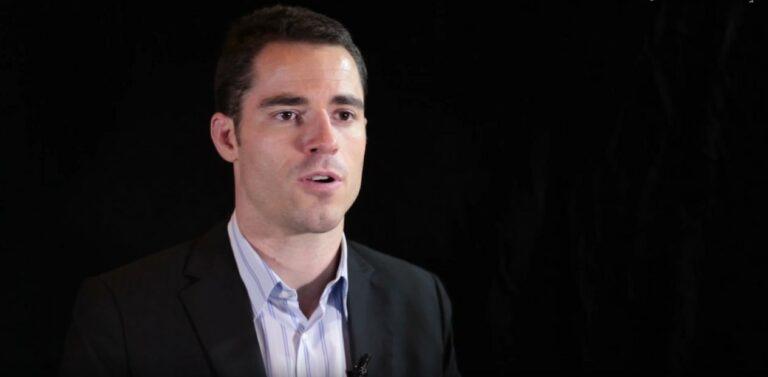Introduction and Context
Ever since he’s joined the cryptocurrency space, Roger Ver has had a great impact on the industry. He brought some of the money he’s made from previous businesses and financed several big start-ups, and he’s also made sure to secure his power by acquiring important domain names and important Bitcoin-related accounts. He’s been called “Bitcoin Jesus” for his willingness to invest in anything promising and spreading the gospel of peer-to-peer decentralized money, and he’s undoubtedly earned his place in the crypto Hall of Fame. Perhaps Bitcoin wouldn’t have grown so fast if it wasn’t for his contributions, as his background in economics and his polished salesman tactics have bought a lot of money into the space.
However, as the information presented suggests, Roger Ver has made great efforts to further centralize a project which started with the intentions of retaining a voluntaryist decentralized nature. He’s definitely not the only one who made such a contribution, but it’s safe to say that he imported practices and tactics from the world of venture capitalism into a utopian and ideologically-pure space. The efforts aren’t necessarily bad, as the project has grown tremendously since the money started pouring in and the king of cryptos received better advocacy, but in the event of a crisis – it’s only natural for the entire space to suffer.
Mr. Ver however, has never been the same since the drafting of the New York Agreement during Consensus 2017.
It was around that time that the community’s disillusionment with the current scaling issues surfaced, and the solutions have created a division whose scarred boundaries are still visible. What the Bitcoin.com CEO did at the time was take matters into his own hands and fork Bitcoin in a way that would exclude the implementation of SegWit and increase the block size eight times (four times larger than the SegWit2X coin which was proposed at Consensus).
The Bitcoin community did not agree with the terms of the SegWit2X fork, so a large proportion of the advocates for a bigger block size have migrated to Bitcoin Cash. If on-chain scaling is your cup of tea, then it makes perfect sense to join the project which covers the changes instead of having yet another fork. So in this regard, Roger Ver was a bold foreseer who capitalized on his ideology in order to create a functional but less decentralized alternative to Bitcoin. Nevertheless, it was the events that followed which proved to be controversial, as instead of having a fresh start and trying to build his coin organically, Mr. Ver has made use of his authority and Bitcoin-related resources in order to grow his project.
The rest of this article will analyze these tactics and deconstruct his methods in order to explain the rise of Bitcoin Cash and potentially predict future events which concern it.
The Entourage: Completing The (Un)Holy Trinity
Roger Ver is called “Bitcoin Jesus” for a very good reason, and we all know that the son of God requires a father and a mystical holy spirit in order to gain legitimacy. This is where Craig S. Wright and Jihan Wu step in and radically change the situation.
When the only slightly-believable individual to claim he is behind the Satoshi Nakamoto pseudonym supports your project, you automatically gain a lot of support. And while many savvy people from the crypto industry dismiss CSW and point out to his limited understanding of Bitcoin (how could he create something that obviously exceeds his technical expertise?), there are many unknowledgeable people who can get fooled by this entire “false prophet” tactic.
Also, having the co-founder of Bitmain on your side is definitely a plus. You automatically benefit from more efficient mining to boost the “spirit” or “ghost” of your coin, and the governance or decision-making become easier. Bitcoin Cash is a more or less a benevolent dictatorship which openly renounces some of the advantages of decentralization for the sake of following the “peer to peer cash” vision that Satoshi wrote on the first page of the Whitepaper. When you own the largest majority of miners and the average person can’t run a full node, you don’t have to worry about ever losing power.
If you have the spiritual authority (Craig S. Wright) and the hardware backbone to support it (Jihan Wu), your Trinity is complete and prepared to monopolize the Bitcoin fork. You won’t have to worry that someone like Charlie Lee makes a public bet to exchange 250 BTC for 250 SegWit2X coins, you won’t have to listen to heavyweights from the cypherpunk community slam your proposals with technical arguments, and you’re free to turn a Bitcoin project into your very own version of PayPal. As a matter of fact, an upcoming hard fork will quadruple the current block size to 32 MB (thus making it even harder to run a full node).
As long as charlatans insist on treating block size as a political football instead of a technical security setting, Bitcoin is in danger.
— Nick Szabo⚡️ (@NickSzabo4) April 8, 2017
The Trinity works, and Bitcoin (Cash) Jesus has begun to gather his (most likely economically-incentivized) disciples in order to prepare for the expected boom of the industry. And Roger Ver knows that he should be more concerned about the no-coiners who have zero knowledge of the technology but want to jump the bandwagon. It’s their money that’s going to increase the price, not those of people who feel skeptical about the project and express their criticism. That’s why Jesus, the fake God and the lesser visible mining “Spirit” are doing a tremendous job together and will enjoy success among the masses.
Appropriating the Bitcoin Brand
I’ve covered the topic of the fight for the brand in a previous article, but it’s still worth to mention a few aspects of this tactic. In many ways, it draws influence from the Soviet propaganda and counts on the short memory of the masses (as well as the ignorance of those who don’t follow the news or enter the space without researching the history).
If you’ve read George Orwell’s “Nineteen Eighty-Four” (which is a sharp criticism of the Soviet Union and totalitarianism), then you remember the slogan “War is peace, freedom is slavery, ignorance is strength”. You must also recall Newspeak, an effort of the totalitarian government to change the language’s words and vocabulary for the sake of changing the way people think and communicate. If you learn that there is no good or bad, but only good and ungood, your mind automatically begins to merge the two terms to the extent that you forget about opposites and embrace whatever those in power tell you. As human beings, our thought is limited by the words we know, and we can’t express something coherently unless we can verbalize it.
The entire “Bitcoin Cash is Bitcoin” and “BTC is Bitcoin Core” propaganda has its roots in these Soviet tactics that the Western world understands best by reading George Orwell’s books. It’s also worth mentioning that Vladimir Lenin, the founder of the Soviet Union and the person behind the 1917 Russian Revolution, once said that a lie that gets repeated becomes the truth. If we hear enough times that Bitcoin Cash really is Satoshi’s original vision, that CSW is Satoshi, and that BTC is the abbreviation for Bitcoin Core (which sounds pretty obsolete), then we might begin to believe it. It’s definitely going to work well with the no-coiners anyway.
Bitcoin Cash is the oldest cryptocurrency. Its white paper was published in 2008 and the genesis block mined in January 2009.
Bitcoin Core (BTC) is an experimental currency that does not have a white paper and has only operated under its current model for two years. pic.twitter.com/YBeepJlwC5
— Bitcoin (@Bitcoin) May 4, 2018
Also, the Bitcoin.com website is one of the oldest news websites in the space. And even though lots of their articles are high quality and well-written, there is still a fair amount of convenient propaganda which is spread for the sake of promoting BCH and legitimizing its “Bitcoin” name. Roger Ver understands the power of journalism and knows that the internet is first and foremost based on text content which gets indexed by search engines – so he counts on his staff of writers to spread the intended message. Let’s not forget that Joseph Stalin, the second leader of the Soviet Union and one of the most influential statesman of modern history (not necessarily for good reasons), once said that “the press must grow day in and day out – it’s our Party’s sharpest and most powerful weapon”.
Making Use of Leverage and Coercion
Roger Ver has been promoting Bitcoin across the globe for years, has financed crypto-related start-ups, and has a lot of influence. But it wasn’t until he posted a recent video on his YouTube channel that he revealed how he negotiates partnerships for Bitcoin Cash. After his long-time friend and partner Erik Voorhees publicly refused to acknowledge Bitcoin Cash as the original Bitcoin project, Mr. Ver recorded himself talking about why he disagrees. But one of the arguments he used early on to express his disappointment in the ShapeShift CEO was that he invested in some of his start-ups.
Roger – please stop referencing me to back up your opinion that Bitcoin Cash is Bitcoin. It isn't. Bitcoin is the chain originating from the genesis block with the highest accumulated proof of work. The Bitcoin Cash fork failed to gain majority, thus it is not Bitcoin.
— Erik Voorhees (@ErikVoorhees) April 27, 2018
This is a big red flag, as it appears that Roger Ver takes his influence in the space for granted just because he invested in some projects. It’s the kind of leverage which many businessmen use in order to secure their position of power, but one that’s toxic for a world which seeks to create autonomy and decentralization. Furthermore, the use of coercion in relation to crypto businesses which received financing from Roger Ver is one of the reasons why Bitcoin Cash will keep on growing and there will be greater adoption and acknowledgement for the fork.
While this is good news for BCH holders, the original Bitcoin must face opposition in relation to its upgrades: even though SegWit has been implemented for almost a year, there are still plenty of exchanges and merchants that don’t offer support for this malleability fix which reduces transaction fees.
For instance, Binance still hasn’t added SegWit support, and even though correlation doesn’t imply causation, Roger Ver happens to be an angel investor of the company. Coinbase, Kraken, Bitstamp and others have added support for the upgrade in order to reduce fees, but there are still conservative actors who might subtly suggest that you switch to alternatives if low-fee transactions is what you’re seeking. Another example is the Blockchain.info wallet which still has no SegWit support, but has recently added Bitcoin Cash as the third supported coin. Could they make it more obvious?
It’s more convenient for the Bitcoin Cash camp to brag about low fees while sabotaging the ability of BTC to remain competitive in this field, and if leveraging companies do not implement upgrades is an efficient way, then it will be done. When you do the side-by-side comparison, it serves the BCH propaganda well to imply that the fees are the most important aspect involved in a Bitcoin transaction.
Because really, decentralization is such an elusive term that very few people actually understand its implication, and the average consumer only cares about the funds. It makes perfect sense and adds up to the argument that Roger Ver is very aware that the no-coiners (including big financial institutions) are the ones who will decide the future of the market.
Conclusion
Without question, Roger Ver is an important and relevant man for the crypto space, and he deserves both praise for his accomplishments and criticism for his tactics. Without his contributions we may not have many useful Bitcoin-related resources, and it’s likely that the popularity boost of Satoshi’s invention wouldn’t have happened to this scale and extent. Nevertheless, the fact that he’s burying his legacy by surrounding himself with individuals of dubious morality, trying to appropriate the Bitcoin brand for an altcoin, and coercing businesses to follow his interests turns him into one of the villains of the space.
Furthermore, we shouldn’t underestimate or laugh at the tactics that he’s employing. The amount of capital that exists outside the crypto market and is potentially bound to get invested in the space far exceeds the current total crypto market cap. Newcomers will do it for financial purposes and incentives (i.e. to chase the dream of becoming a Bitcoin millionaire), financial institutions will begin to invest at a larger scale, and the number of debates regarding decentralization will diminish.
It won’t be about “your mining and on-chain decision-making process is dangerously centralized and bound to arbitrary changes”, but rather the “I’m saving this amount of money on fees” argument. And while the Lightning Network is still in its early phases and requires good engineering in order to reach its intended level of accessibility, alternatives with on-chain scaling will be much more convenient and popular.
Fans of small blocks and node runners should actively promote the advantages of this version of BTC, rather than constantly attempt to respond to the destructive propaganda.
When you’re dealing with this level of Soviet-style rewriting of history and “newspeak”, your weapons must be positive and unquestionable. It’s definitely a bad idea to fall for this never-ending cycle of accusations and ironic answers to propagandistic statements, and for the first time ever Bitcoin needs new spokespeople and promoters who can match Roger Ver’s skills and counter them with sound, rational, and economically-reasonable arguments.
We must also be aware of all these tactics and understand that they are much more than the ambitions of a potentially-vengeful person.
They are the elements that can break a business, social movement, or even government, and they count on the masses in order to process and deliver the message. Bitcoin Cash isn’t just peer-to-peer cash, but also an intended mean of destructive peer-to-peer human communication: someone who has received the information and has become convinced that BCH is Bitcoin will carry on and spread the gospel just like any disciple of Jesus would.









